OPINION –
Last week the San Francisco Chief Medical Examiner Dr. Christopher Liverman reported OpenAI whistleblower Suchir Balaji’s recent death to be a suicide.
Balaji is not the first to take his own life after revealing sensitive information.
In this post, we’ll explore five cases of whistleblower suicide to better understand the potential risks of speaking out.
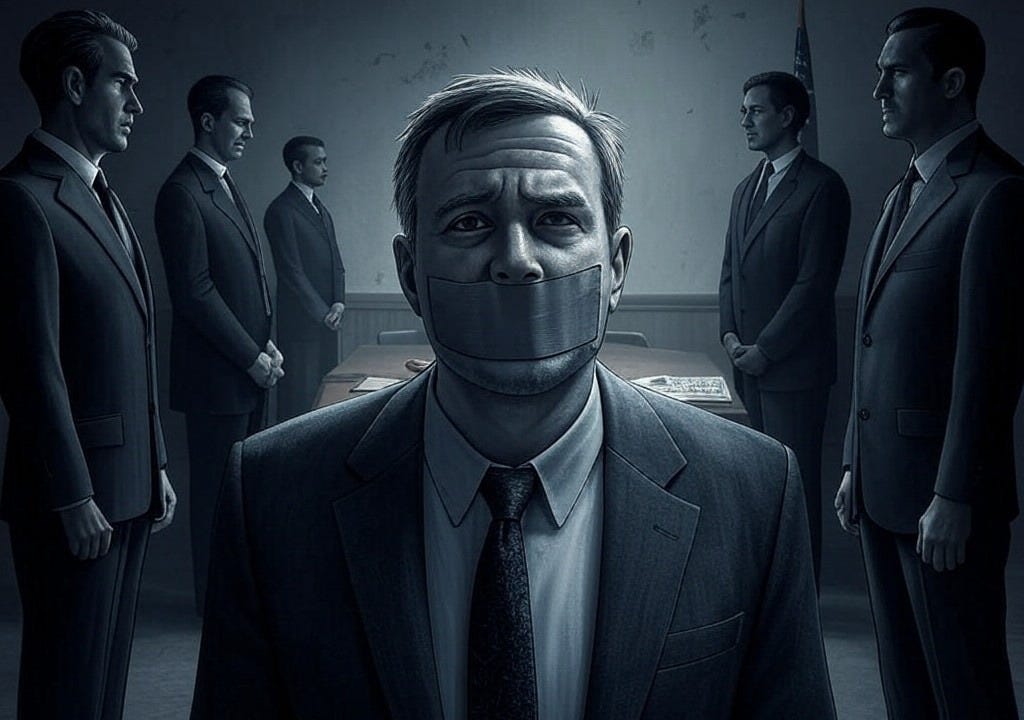
1. Suchir Balaji
Balaji was only 26 years old when he was found dead in his apartment November 26. This came just weeks after exposing illegal copyright activity by former employer OpenAI to the New York Times.
Led by CEO Sam Altman, OpenAI is an artificial intelligence company known for its language model ChatGPT.
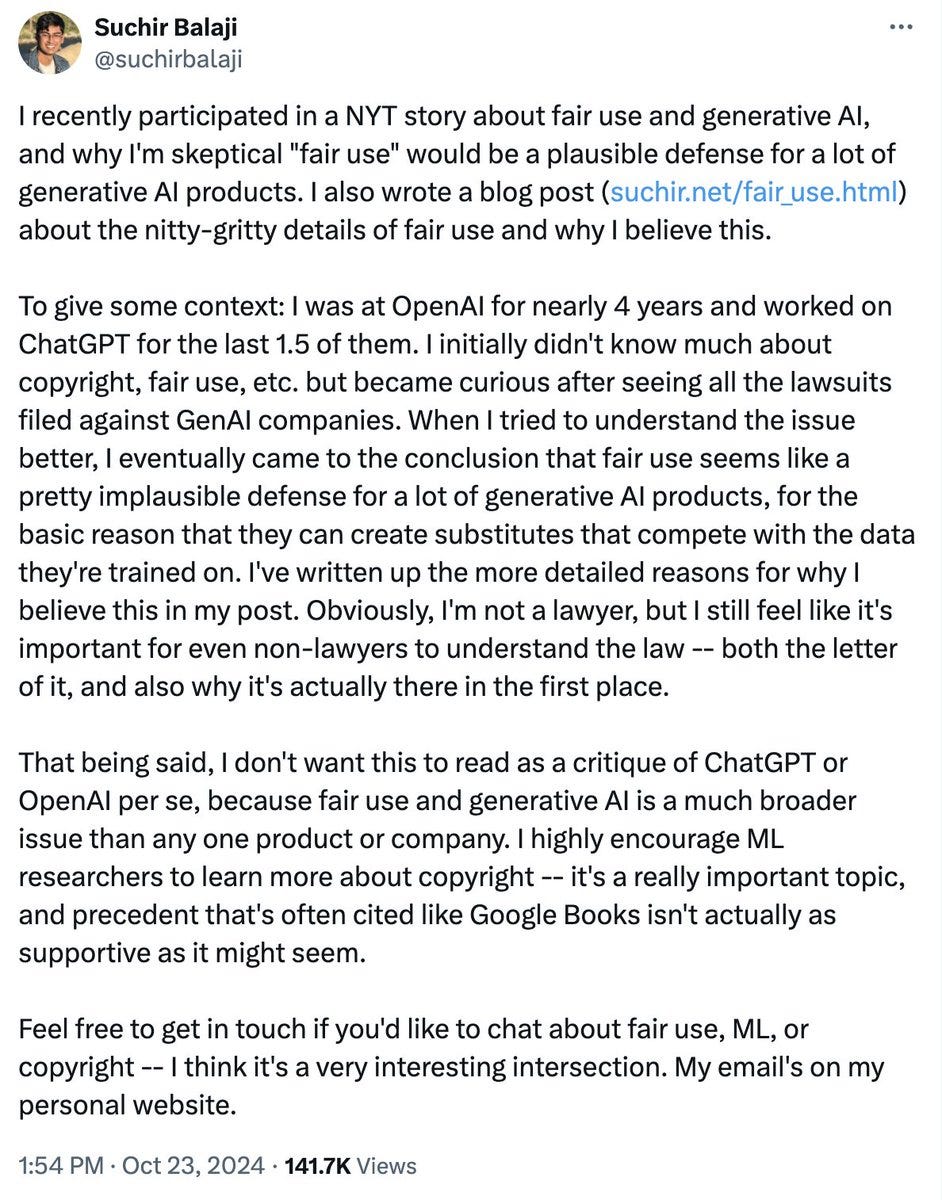
Balaji left his position as an AI researcher in August over ethical concerns, citing OpenAI’s infringement of copyrighted information. The company, now subject to at least eight related lawsuits, has defended its practices under a “fair use” legal argument.
The New York Times is one of such companies that has taken legal action for copyright infringement, even naming Balaji as a holder of key evidence in their December 2023 lawsuit.
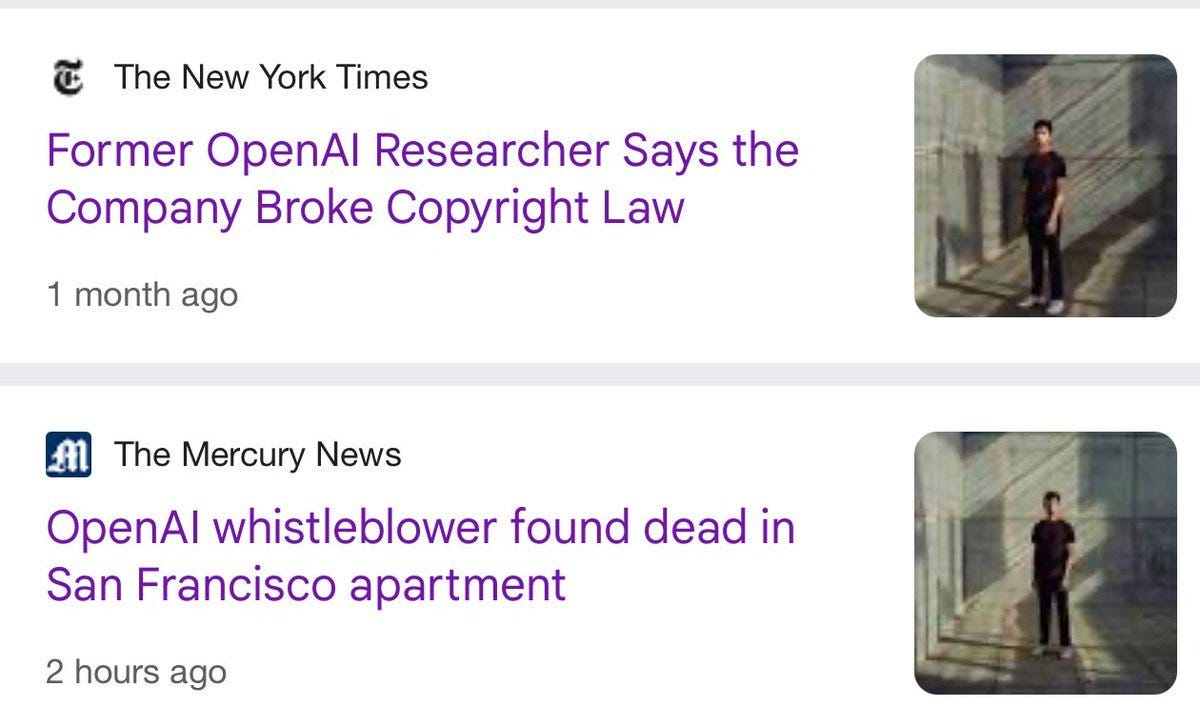
OpenAI’s major investors include Microsoft, NVIDIA, Fidelity, and Wells Fargo, among others, with Microsoft alone contributing $10 billion to the company in 2023.
Bill Gates has been cozy with the company since 2016, even since leaving Microsoft’s board, described as a quiet power broker at Microsoft and over their partnership with OpenAI.
Gates and Altman allegedly share a similar vision for AI regulation and have appeared together numerous times, for instance at a World Economic Forum event and on Gates’ podcast.
2. John Barnett
Barnett claimed unlawful retaliation, that he had been demoted, blocked from promotion, and subject to character assault and a hostile work environment after filing a complaint with the Occupational Safety and Health Administration,
The complaint alleged that aircraft manufacturer Boeing was violating important safety protocols and not up to code in production processes at their Charleston plant, for instance using defective parts to meet deadlines and proceeding with faulty oxygen mask mechanisms.
This explosive leak was picked up by mainstream outlets like the New York Times and BBC, and even was featured in a Netflix exposé of the company.
Incongruous to quality control allegations, Boeing happens to be one of the largest beneficiaries of the Biden administration. The company received $82.9 billion during his term according to Quiver Quantitative research.
Although Barnett left a suicide note on the dashboard and ballistics indicated a self-inflicted wound, friends and family were left questioning. They noted that he was committed to seeing through his deposition process and had even warned a friend that if anything happened to him, “it’s not suicide.”
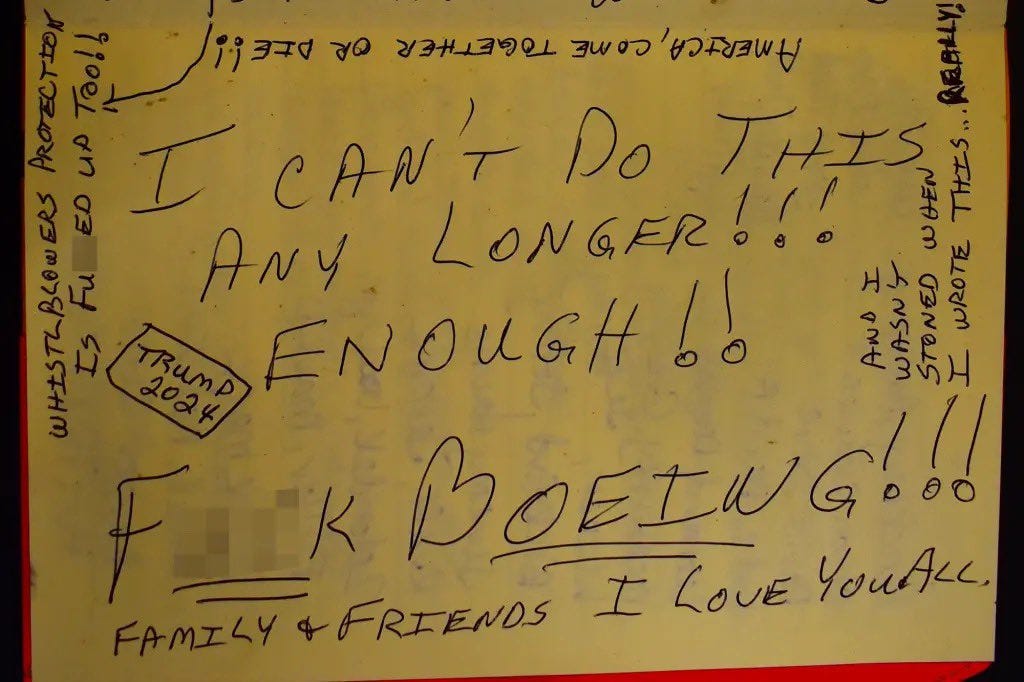
3. Philip Haney
Department of Homeland Security officer Philip Haney was found deceased by gunshot wound to the chest in a park-and-ride lot along California State Highway 16 in February of 2020. His death was ruled a suicide years later in March 2022 (per an investigation assisted by the FBI) with evidence including a suicide note and pre-arranged personal and financial affairs.
Haney was a vocal critic of the Obama administration and even authored a book about a compromising pattern of submission to Jihad that involved protecting Islamist terrorist members and downplaying the threat they posed to Americans.
He posited that numerous terrorist attacks could have been prevented if the administration hadn’t chosen to prioritize and appease Jihad over national interests.
Before Haney’s passing, he was working on a sequel to his book which allegedly was expected to expose top officials within the Obama administration, and perhaps further delve into ties between Obama and Islamist groups.
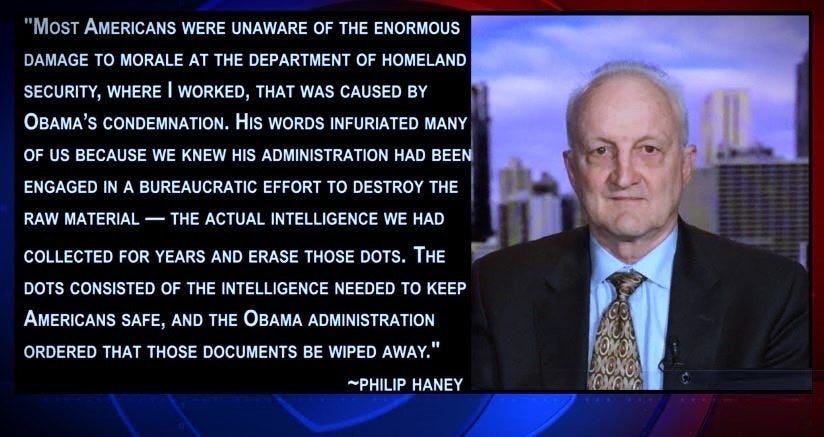
4. Michael Ruppert
Former LAPD narcotics officer and conspiracy theorist Michael Ruppert died by apparent self-inflicted gunshot wound to the head on April 13, 2014. Eerily similar to Philip Haney, he was found in a park-and-ride lot along California State Highway 16.
This occurred well after Ruppert had become known for his work exposing CIA-related conspiracies, for instance, drug trafficking, and that 9/11 was an inside job related to big oil.
Ruppert was ahead of his time, asserting that the terrorist attack was likely used to facilitate war conditions in the Middle East, as well as allow the Bush administration to seize control over the depleting natural resource.
Before taking his life, Ruppert left behind suicide notes and emails that provided instructions to cremate his body.
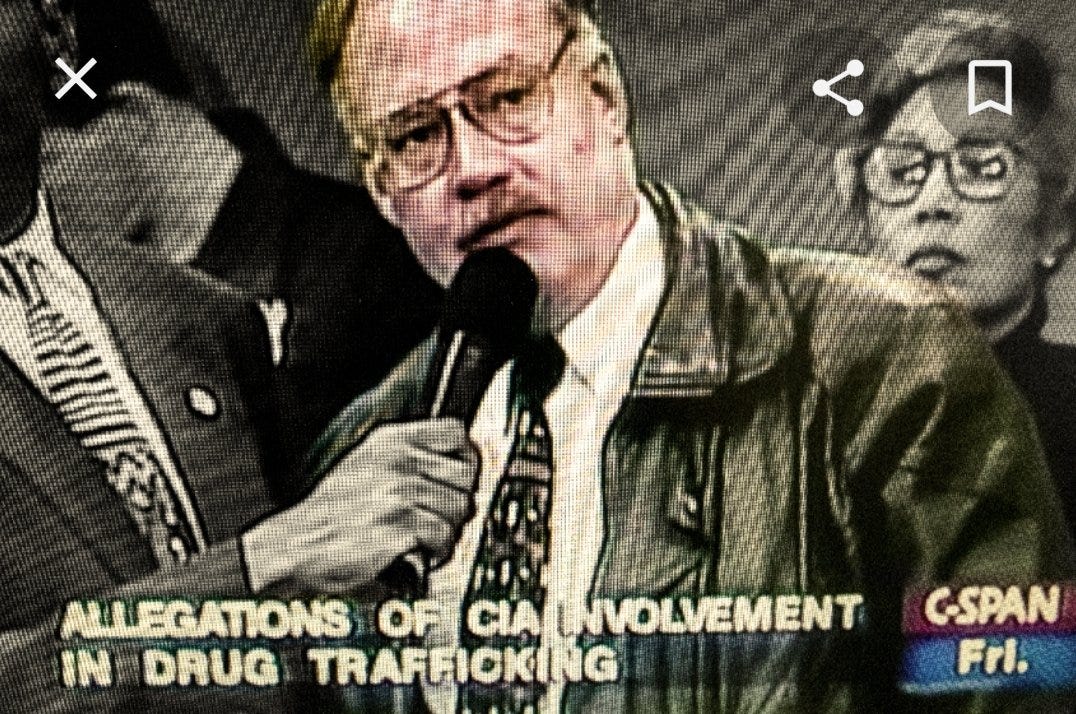
5. Gary Webb
Most curiously, investigative journalist Gary Webb committed suicide by not one, but two gunshot wounds to the head on December 10, 2004.
Webb became well-known after penning a series in the San Jose Mercury News that exposed CIA involvement in a drug trafficking operation that benefited Nicaraguan Contra rebels in the ‘80s.
The fallout from these articles included criticism by major publications such as the New York Times, Washington Post, and Los Angeles Times and a demotion at his publication. Webb eventually resigned from the Mercury News but struggled to find his footing as a journalist again thanks to being essentially blacklisted from mainstream outlets.
Prior to his death, Webb claimed that he was being followed and harassed. Webb’s cremation was pre-arranged and he left behind a suicide note.
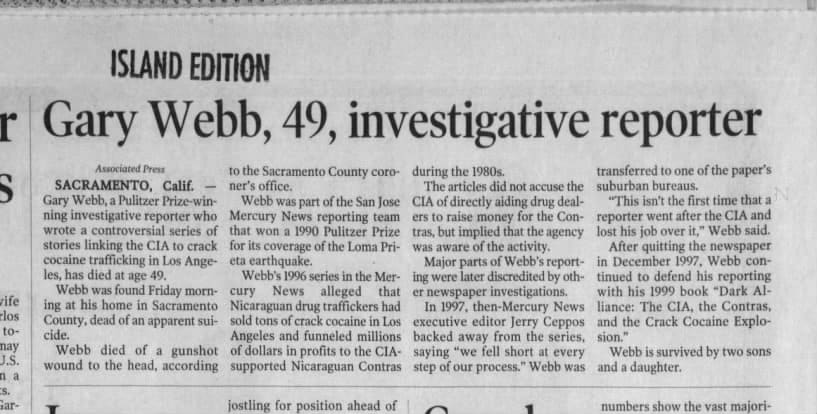
Conclusion
We will never truly know what was going through these suicide victims’ minds moments before their untimely deaths, but it’s important to acknowledge their bravery in speaking out for the sake of public interest.
Totally unrelated, but I am NOT suicidal in any way.


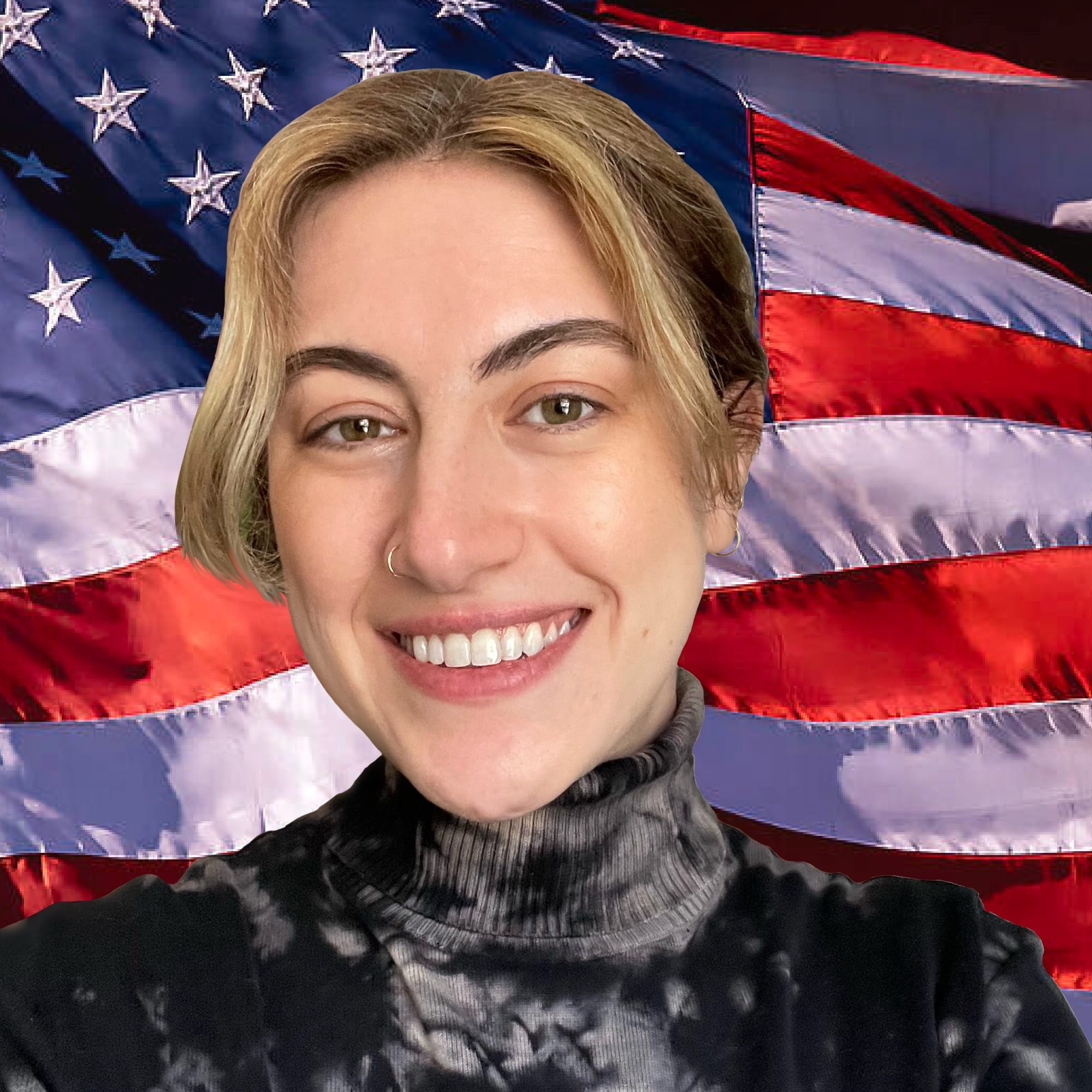

















Comments are closed.